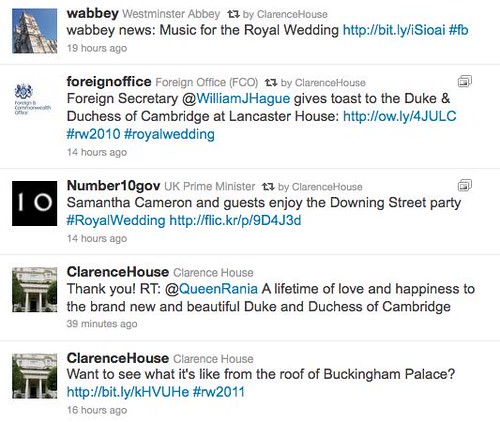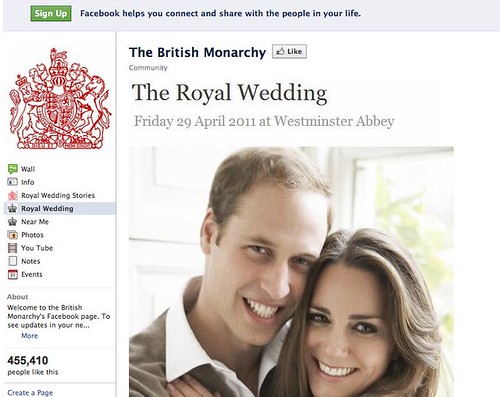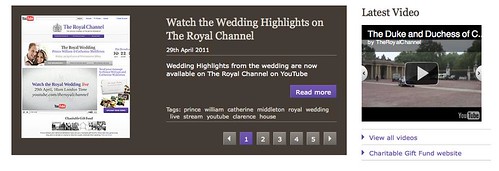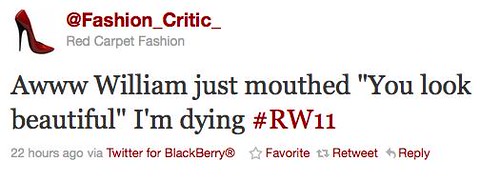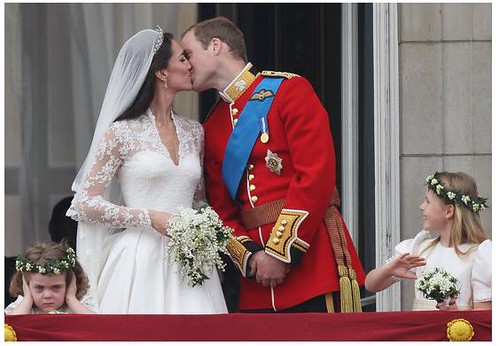Weaving words. All views are my own, unless otherwise indicated, and may have changed by the time you read them.
Monday, November 07, 2011
“I don't buy barbed wire, I just dig wells”
Sunday, August 07, 2011
On the peacock-feather sellers of London
You could never sell four peacock-feathers for £2 in Stoke-on-Trent. Only the other day I got five peacock-feathers for free from my friend Helen, who rehomed a peacock from the Bucknall City Farm. We would all know a source of cheaper peacock-feathers and would use this information to mercilessly drive the peacock-feather seller away from profit. That is, unless peacock-feathers became part of some advertising and word-of-mouth boom, or if they became part of a social custom. In those cases, we would flock to join moody queues and battle old ladies for the last bunch of feathers, which would mysteriously have increased in price to £1.50 each, or 4 for £4.
The amateur economist can draw several lessons from the fact that peacock-feathers are sold to the tourists of Brick Lane and Trafalgar Square.
Packed Brick Lane market seemed to be teasing recession-hit Stoke with its tables of mismatched Wedgwood being picked up and turned over by enthusiastic hunters. But then you'd think of their overheads. And of how hard it probably was to get a spot in this teeming market. It is bad form to begrudge anyone a living, but as soon as I stepped off the train back in Stoke, I felt the familiar rising feeling of anger at missed opportunities, silence and passive barriers; envy for Burslem and its quiet streets. At the same time knowing gloom, blame and helplessness is a bad habit, preventing us from just getting on and working towards the city we want to see.
The many successful traders of Stoke are like the peacock-feather sellers. They find or make something simple and beautiful and take it to where the crowds are. The global pottery industry developed in a way that was untainted - relatively if not completely - by slavery and exploitation. We can learn much inside and outside of the Potteries.
Maybe next time I'm in London I should ask those questions.
Saturday, July 09, 2011
Dare we hope?
Thinking back on the decades since Murdoch owned the Sun, his influence has been significant. It was the flight to Wapping and subsequent strikes that are in my consciousness as the equivalent of the miners' strikes, showing how unions could be broken and working conditions gradually stripped back, not because of a lack of rights but because workers willingly entered into jobs or continued them in an industry they felt passionate about. I moved away from that industry, as I've stayed out of party politics, under the assumption that I could never change the things that made me feel uncomfortable, even fearful at times.
And yet things are changing.
I have renewed respect for the Guardian, whose relatively quiet work on this story has underpinned all that we now tweet and retweet. The patience that the editor has had in commissioning journalists goes against the belief I had developed that all newspapers only chase the fast story, the easy conflict. There are other journalists with stories that will be equally, if not more important, whose time could still come. The unpredictable thing about online mobs is that, like a swarm of bees, they can land anywhere.
There is the possibility that buyers of newspapers will look again at what they're reading and look around, try one of the different, very good newspapers that are still being produced. That they might think a little more about the sources of the stories that are so compelling and wonder whose privacy has been invaded, whose door has been knocked upon, to get it. They might, as they did this week, think "What if that was my family?" Newspaper sales may have declined, but there is still a market there of millions, and the potential to grow many more with investment in news that people want to read. Newspapers, after all, have been running on the web model of micropayments and advertising for centuries and most of the infrastructure is still there. Time may be up for newspapers that simply rewrite what we can already find online, that don't allow their journalists to do the job that we need: curate, reflect, dig deeper, ask questions.
As Nick Davies said in much more detail in Flat Earth News, phonehacking was a part of the churnalism culture. It's cheap and easy to do from your desk. You don't even need to send an agency hack round for the deathknock. There were no ethical considerations before it was made illegal because they were just responding to the market. Why would millions of people buy a product or advertise within it when the means of making it would, apparently from this week, disgust them? We can only assume that they didn't know, or they hadn't thought about it. And that, in itself, has a lot to do with an addictive, fast-moving culture that wasn't a Murdoch invention, it was being written about in the 50s and probably before that. Stuff that drives the emotions, gives people a sense of belonging, provides enjoyment.
Could we imagine a market for regional and even local newspapers, working with the web, the millions of voices that can be so easily found now, to provide newspapers that are enjoyable as well as useful, where they can say "nobody was hurt in the making of this newspaper (except in the public interest)".
Dare we hope for more diversity in mainstream journalism in the future; a change in the industry that, maybe without intending to, produces the same homogeneity we see in politics? That communications officers might be hired to share messages, not 'manage' them? And that the Labour party might stop blaming everyone else for a second and talk about why they spent so many years inflating the power of people who, at the end of the day, just run some newspapers? And rather than calling for new laws (which will be completely unenforceable now we can publish from anywhere), look at why our existing laws weren't applied?
Twitter is an intense place to be at the moment and emotions are running high. It has, after all, been an amazing week for news. I guess I'm writing this blog as a reminder to myself to step back, to take a bit of time to think, and to encourage more of the careful, thoughtful work that we have seen so much of this week, from powerless people as well as the big names. Let's not get too addicted to the thrilling rush of the next twist. Let's not, as newspapers might, overplay the power of 'social media' which is as meaningless as saying it was the News of the World that hacked those phones.
Luckily for us - on the whole, we are lucky to live in a country like Britain - our version of the Arab Spring won't see us overthrowing a brutal dictator. But there are parallels, especially for those in my generation and younger who have never known a world without Page 3 (for any overseas readers who might stumble upon this: topless women seen as soon as we open a number of tabloid newspapers). And there are also serious questions to be raised about some of the things that have been ignored over the years. I hope politicians and grassroots activists will feel emboldened to tell their stories and speak out about things they have been frightened about in the past. None of this will be easy. It requires exchange, education and probably all sorts of other things I haven't even thought about yet but I'm sure others have.
Because if there's one thing I know which makes me hopeful, it's that there is an amazing world of good people making rapid new connections and, maybe, shifting old power structures, even just a fraction.
Thursday, July 07, 2011
If Twitter was a nation state...
Disciplined, it makes its members perfectly concise, not like those verbose chatterers of Facebook and Google+. The harsh isolation of Unfollows for those who transgress against unwritten rules. A stern framework with boundaries. Full of strange rituals, games that appear on the surface so pointless. There be wolves and other dangers and tests which all young tweeters must face.
But it's so frikkin' cool! The ladies so tough and sexy, its citizens standing up and fighting for what they believe in!
Twitter looks like a mess at first. But suddenly the enemy realises there are hundreds, maybe thousands of tribes, all standing together with one voice when they have to,
Shouting: this is Twitter!
(admitted: I learnt everything I recall about Roman history from the film 300)
Monday, July 04, 2011
It's time for an entente cordiale
Saturday, April 30, 2011
The Royal Wedding - the webfan view
Clarence House has been tweeting with great confidence throughout the engagement and yesterday's wedding did not disappoint: a nice mixture of the formal facts, ceremony PDF, the stuff *everyone* wanted to know about, retweets and rooftop views of the flyover.
All pictures are screengrabs for illustration only, follow the links for originals and full source information.
Friday, April 22, 2011
We are energy
North Staffordshire is a complicated place of villages, towns and a city. Our area was one of the heartlands of the industrial revolution. Our ideas and products spread across the world and we retain easy links to the rest of Britain and further afield. We are surrounded by resources but for many people it can also be a very challenging place to live. For example, in Stoke-on-Trent many people live in substandard housing and experience poor health. Opportunities can be difficult to find and access. The city itself can be difficult to navigate. On the flipside, it's a low cost place to live and when the sun comes out and at least one of the football clubs is doing well, the spirit of the city is lifted.
+ find and navigate everything around us such as opportunities, events, spaces, resources
- challenge decisions, navigate and improve systems, overcome challenges and live more sustainably
- take part in opportunities to learn
- share our own knowledge and skills with others
- help to make links between people and organisations
- curate and collate information to make it accessible to more people
- share information about opportunities, spaces and services
- listen out for the positive and negative in the conversations around us and online.
Wednesday, February 23, 2011
A note for sharing
Stoke-on-Trent’s first ever digital arts and social media festival takes over venues and streets across the city centre for a weekend of events. Almost all of it will be free, with some events being ticketed and many drop-in.
The festival kicks off on Friday night with a multi-media electro-acoustic concert event at the Potteries Museum and Art Gallery performed by musicians from Keele University Music Technology Group.
On Saturday we take to the streets with B Arts’ 100 Stories – a unique walking tour around the city centre looking at Stoke’s hidden histories that blends live performance, projection and digital soundscapes.
On Sunday we end with a special bITjAM performance #mediafail. The digital discards we all have cluttering up our hard drives – out of focus photos, phone messages and video of the sky – will be transformed live into magical sounds and images.
As well as performance events there’s a full workshop programme that encourages all ages to join in and get creative. At the Central Library there’s social media surgeries for the over-fifties that will have you Flickering and Facebooking in no time; Lego animation workshops that will create brickfilms from your minifigure collection; and Mediafail workshops that provide a final resting place for your digital mistakes.
If you’ve got a suggestion for an event or would like to know more do get in touch at bitjam@me.com
Keep up with all the DATFEST news at www.datfest.org.uk
Stoke Your Fires festival aims to be the creative heart of the West Midlands region for film and digital media in the eyes of artists, designers, producers and other industry professionals, critics, and of course the public.
Stoke Your Fires is a place to celebrate, innovate and stimulate exciting new work and creativity through these dynamic media but also provides a forum for the exchange of ideas, founding of new partnerships across commercial & public productions and a nurturing catalyst for career development.
The festival started in 2008, and has rapidly built an internationally recognised programme in animation and hopes to continue this across all genres of the moving image.
If you have any questions or would like to get involved please email info@stokeyourfires.co.uk
Saturday, January 01, 2011
Agile Stoke 2011
- Individuals and interactions over processes and tools
- Working software over comprehensive documentation
- Customer collaboration over contract negotiation
- Responding to change over following a plan
“In sport, agility is often defined in terms of.. an integration of many components each used differently”. (Wikipedia)
To stretch the analogy a little further, if the Agile priority is working software, and Tom Berners-Lee's working code, then perhaps ours is a working city. You can interpret that as you want. For me, it's a city full of opportunity, flourishing in every aspect, freer from life-limited illnesses and early deaths. Every town, village and community valued as part of a diverse, sustainable city. Utopian, maybe, and certainly complex, but the web and our own history both show us that revolutions are possible in a very short time.
It's easy to get bogged down in Stoke's problems (yah, no kidding, says my weary reader), but I hope we becoming known for playing to our strengths, not arguing over our weaknesses.
... joining in the Global Twestival again [we did! This year?]
... that we make greater use of what is on our doorstep. I've been thinking I should develop and promote Social Stoke more - it's building into quite a nice little resource [1,162 links and counting]
Thursday, December 30, 2010
Maybe it's not Facebook's fault
Beyond that, I harbour lots of resentment.The way they tinker with stuff for no good reason. How you have to go through no end of dilemmas about friend requests from people you can't remember, didn't like much or who you don't particularly feel comfortable knowing in *that* way. The privacy stuff-oh-my-god-yes: you have to watch your privacy settings like a hawk, because Zuckerburg has just flicked the switch that allows your neighbour's cat to tell the local burglar that you are out. I dislike its blue borders and the sense it's got me, whether I like it or not.
Unlike Twitter, I can't choose the method I use to speak to my friends beyond web or mobile (both of which look pretty much the same), and I can't stop using it because many of my friends don't use anything else online. It's like having a flatmate who gets on your nerves but nevertheless you have to see every f-ing day and who insists on showing you their sunny holiday photos despite your clear, silent, disinterest. And who, while they're at it, rearranges the furniture while you're out.
What annoys many most of all about Facebook is the sense that it is becoming a separate internet of its own. A private island, locked away from the open web, with more users in the UK than any other site except comparethemeercat.com.
But in a sudden seasonal turn, I thought – what if we're being unfair on Facebook? It's not Facebook that's closed off Facebook. It's us. We, the collective we, have decided that if Twitter and Linkedin are public, Facebook is private. In theory (although I've never seen it work in practice), Facebook has the same capability for RSS feeds as anything else. People who don't change their privacy settings can have all their stuff broadcast as easily as if they'd tweeted it. Equally, of course, private tweeting is just as acceptable. There are no rules except those we create ourselves.
I don't intend to change the way I use Facebook. It's the place where I go to say things that are way too dull to unleash on the open web. I like checking in on what old friends are having for tea, or who had a baby this week. Although I'm too paranoid to put much up that is genuinely private, it's still got photos of things that I don't want to share with everyone by default. But, having made that choice myself, it's not very fair to pin the blame on Facebook for holding closed data about me. The other choice would be to open it up completely. I could connect with everyone I've ever known for any length of time in a mission to create a complete, open social web of my life. But I don't really feel like doing that. If I do anything to reconcile my use of Facebook with the desire for a complete, open web, it'll just be to nudge some of my friends who are posting up Facebook content that really deserves a wider audience into blogging, or tweeting.
One of the things I have hazy memories of from history study was the concept of private and public spheres. This was a dividing line between men and women that, we learned, emerged in the Victorian era. Women spent most of the twentieth century trying to hop over the fence back into the public sphere. As a(n) historian, I now ask, how do we make these collective decisions? Looking back, will we find that Twitter = Public sphere & Facebook = Private sphere was a permanent decision, or will it shift once again?
Only time will tell. But in the meantime, I open up it up for the last few hours of your holiday entertainment – are we being unfair on Facebook? Discuss.
Friday, November 05, 2010
Coproducing our future
Monday, October 04, 2010
Thursday, September 23, 2010
Mysteries of Sneyd Green
Tuesday, September 21, 2010
Web apps for healthcare
- A sort of Mapumental for choosing GPs, where GP data can be visualised on a map and information highlighted depending on what is important to the user, for example by satisfaction ratings, language, whether particular languages are spoken, how appointments can be booked etc.
- A text service where you send your postcode and the phone numbers of the nearest 5 GPs who are taking on patients are sent back.
- A map of hospitals showing waiting times, ideally in real time or by trend.
Thursday, August 26, 2010
A social media strategy in brief
Friday, August 13, 2010
Social Stoke nears 1000 links
Wednesday, June 09, 2010
A nostalgic tea towel for my generation
Together in Electric Dreams
And dreamed.
We copied pages and pages of code
and if we were lucky, got a BASIC ping pong game.
Our life's work was stored on a 32kb floppy disk
We waited, thrilled, around a dot matrix printer
and got our Ataris to speak to us.
Campaigns for gadgets and colour TVs took years
We accumulated boxes and boxes of videos, cassettes and defunct machinery
(that we can't bring ourselves to throw away)
We read about email in magazines,
but in our schools
internet access was barred.
We messed about with
wires and bits
of grey hardware.
And one day we heard the
screams and high notes
of a dial-up connection
And we waited.
And one day,
we were connected.
It makes me wonder:
What do the young
today?
Wednesday, May 19, 2010
Saturday, March 13, 2010
Favourite places
When I sweep in, I can look around at a vista that takes in Tunstall's epic Catholic church, the orange and brown rooftops of Chell, Stanfields and Acreswood, Port Vale and the Hamil Road flats, Burslem's mixture of new and old buildings, Wolstanton a world away beyond the lakes and forests and finally back to Tunstall market and old high street. In the foreground the metal-shard-ceramics structure makes a nice centrepiece to the new retail development upon which the jury is still out but is certainly popular with our city's shopping multitudes. The carpark is an empty oasis of calm before one negotiates the familiar crowds of Tunstall Market and its kind traders.
I will not tell you where it is, you will have to find it yourself.
Sunday, January 24, 2010
UK Local Gov Camp 2010
The first session I went to was a chance to learn where people are from and how they are tackling the challenges of the modern world. “I'm not here officially, that's how well we're doing”. It is clear that interest in online communication is growing throughout councils and the case that they should be talking to people out there is clear enough, the challenge is how. Much of the conversation is moving beyond barriers and towards solutions. The barriers are going to take a long time to break down, but here are a few ideas from the councils here today:
don't ask for permission: workers within councils have made great links by using social media and then demonstrating the positive outcomes. This may be easier said than done and it is sad to note that a culture of fear is pervasive for many.
you have to start somewhere: using social media is harder if you are not familiar with the space and conventions. You can't get good at it without starting.
there is always risk, but take care to explain what you are doing and why. Most organisations see the benefit of engaging with the public and well-meaning, thought-through engagement has demonstrable benefits. Things can and will go wrong, but in order to innovate we have to be able to fail.
think about using social media for internal collaboration as well as external communication – a closed space may be a good way of developing trust and social media skills. There are plenty of free platforms that don't have to be public.
find hard figures – councils are probably most interested in cost savings, so make comparisons with other areas of spending. For example, if you are piloting a Twitter account (which costs nothing), track the number of tweets and the number of followers, plus examples of engagement like replies and retweets and compare it to the cost of a mailout or leaflet drop.
Use external tools and systems instead of waiting for the IT blocks to come down. By working with your social networks, you can get a lot of help. Mobile internet is making most social websites accessible wherever you are, so you don't need to be disconnected. “Once you start a hub, people join and help”.
“If you've got the passion, use it and ask the rest of the network questions when you need help”.
A number of resources are already available and a resource point is currently under development by iDEA, so if you need examples of strategies or evaluations, have a look round and you might find an example to work from. These might include acceptable use policies and acceptable behaviour guidelines that might already exist, but may need updating to enable council workers and councillors to more effectively engage in conversations in their community whether offline or online.
Some quick suggestions for councils from the session on local content:
Don't publish newspapers – think about how you might stimulate the creation of websites and give people the skills – embrace the people talking about you and treat them equally to the press – open up your data so people can build useful things with it.
I then got a little insight into some of the development platforms that people are using to build those tools, including the data.gov.uk site which is built in Drupal. While this is completely not in my area of knowledge, it was an exciting learning experience. There is clearly masses of choice for the home developer to learn about and the communities building the tools are collaborating on new modules all the time. Hopefully someone has uploaded an photo of the platform comparison the group discussed.
Afterwards I asked Rufus Pollock of the Open Knowledge Foundation if he could make some suggestions of access points for the curious beginner. He said that Python is a fairly easy programming language and that if people just want to make a start with data they could help collaborate on wheredoesmymoneygo, which doesn't involve programming skills, just the time to delve around council websites finding information and adding it to spreadsheets.
Back into my comfort zone, we had a session on how conversations – especially a mass of messy conversations – can be turned into action. This was introduced from the point of view of the private sector, for whom Promised Community undertake consultation processes. We heard a positive vision from Harry Metcalfe, creator of tellthemwhatyouthink, of a “friendly and collegiate” atmosphere of constant consultation. We started to unpick the difficult dilemmas like whether we ask people at the right time and whether we genuinely want 'everyone' involved in decision making.
A few good suggestions emerged, including:
Good outcomes are more likely if all relevant communities are involved at every stage. They are more likely to be content with the decisions and feel that there is transparency in the decision-making. This is difficult, particularly in tense political climates, and heavy on resources. Leaders and political representatives should be encouraged to write or communicate through video regularly.
Feedback mechanisms can solve smaller problems. For example, users of Patient Opinion can highlight problems that can then be fixed, or if health workers have permission to give a direct explanation this can allay anger
We are moving from a time when our only communication channels were the media, meetings and one-to-one contact, to individualised information feeds, opportunities to publish everywhere and the wide availability of free tools that make virtual collaboration not just possible but easy. Could greater self-expression, reflection and dialogue lead to healthier communities?
Finally, a stimulating discussion about data got us thinking about the future. Which datasets still haven't been turned into tools? What would be the dataset that the government really regrets releasing? Which future data-driven tools will have massive public impact and which will make their makers rich? Is data the new oil?
This final metaphor bought forward some interesting points. The service economy around information is easy to see and won't be threatened by the free availability of information, which lowers entry barriers for those who want to develop services. Data's value is not necessarily in its raw form, but in the connections people make between them and the more open source datasets that are developed – for example filling in the gaps in compatability and tagging - the more advanced our tools can become. As well as data, demand will rise for content, particularly government-produced content that can be presented in more effective tailored ways if it is available to reproduce.
It was a fascinating day with a strong mix of different actors. The most encouraging thing to see is the rise of collaboration and a widespread development of confidence. While last year, many of the conversations at gatherings like these were about the problems, this year was much more about the work that has to be done. As well as meeting many of the lovely people who I already know through Twitter, I came away with lots of new contacts and new leads for local skills development. This is how we can build bridges between the areas where this stuff is still either totally unknown or vaguely known and terrifying, to the collaborative organisations and individuals who are keen to get their hands dirty and start building useful things. It's a massive learning curve, but one we will have to face for the rest of our lives.

